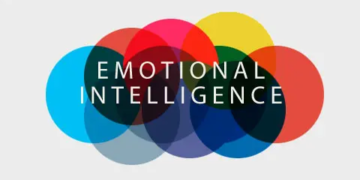3 weeks ago, I was part of a panel of the Women in PR Annual Summit where we were discussing Emotional Intelligence and its application to Leadership.
I did learn a lot from my fellow panel members as well as the attended at the Summit on what we need to do as communication professionals to ensure that we are emotionally intelligent.
The dictionary description of Emotional Intelligence is “the capacity to be aware of, control and express one’s emotions, and to handle interpersonal relationships judiciously and empathetically”. Emotional Intelligence is certainly the key to one’s personal and professional success.
Emotional Intelligence is key at the work place because it is how people and relationships function. How do you relate to people? How are the relationships between colleagues? What is the relationship between the company and its customers, competitors and other stakeholders?
An environment in which the people are emotionally intelligent is one which enables them to work together to maximum effectiveness. This can only increase the organization’s success, however measured. Also an organization which is emotionally intelligent has employees who are effective, confident, self-motivated, are committed and are aligned with the business.
I am certain many people have experienced this but the more upset you are, the less able you are to focus on what is important. It becomes difficult to think clearly. An emotional imbalance sabotages your ability to make good decisions or to react skillfully. Also, emotions spread from group leaders to group members. If we look within our organizations, we may notice that when a group leader is in an upbeat mood, people in the group catch that mood and the team tends to perform better. The same thing can be seen when a leader’s negative mood affects the rest of the team.
This does not mean that we are robots and should have one emotion as a constant, it means that we should be able to know that despite being not at the best mood, we need to be able to manage our own emotions so that it does not affect others. Again we have seen that more often than not, customers remember most vividly negative encounters they have had when being served. In fact they remember it much better than the positive encounters.
So how can we as communication professionals and leaders therefore strive to be emotionally intelligent so as to create a good atmosphere and in the long run emotionally balanced teams?
First, it is important to be self-aware. It is extremely important as an individual to know who you are- what your strengths are and what areas you need to improve on. What are those things that you are ‘eyes closed’ really good at and what are some of those personal attributes that you could really work on. Once we identify these things then we are making a conscious decision to start working towards capitalizing on our strengths and minimizing our weaknesses.
For example, perhaps you are not a good listener or you do not take feedback especially negative feedback too well. To change that, first ask yourself, Is this something I want to change? Why do I want to change it? Will I become a better person if I listen more keenly?
Secondly, get feedback from others about yourself. Ask people whose opinions you trust, who know you well, for their input about yourself. Compare and see if their feedback has any similarities to your own personal assessment.
The third step is to develop a plan and start practicing. If you want to become a better listener, the core of the empathy competency, your learning plan might be: whenever I have the opportunity to listen, I am going to put all distractions aside and pay full attention to this person and listen to them fully.
The fourth step is to have someone who can support you, who can help you think about how you can do it better next time. When we are under stress, we tend to fall back on our habits. With a good friend, a coach, or even the support from your team, you can say- I was feeling pressed with time, and did not listen. What could I do next time? They can help you figure it out. You should see it as a learning opportunity and not a failure.
The final step is to keep practicing. It may be at work, or at home, or somewhere else. Whenever there is a chance to practice listening and communicating in a better way, you go through those steps. The more often you do it, the easier it gets. You will make the new habit a second nature. You will do it without having to think about it twice. That means the new way of doing it becomes the preferred way.
Emma Wenani
Chief Director
Global Media Alliance
Linked In: Emma Wenani




















